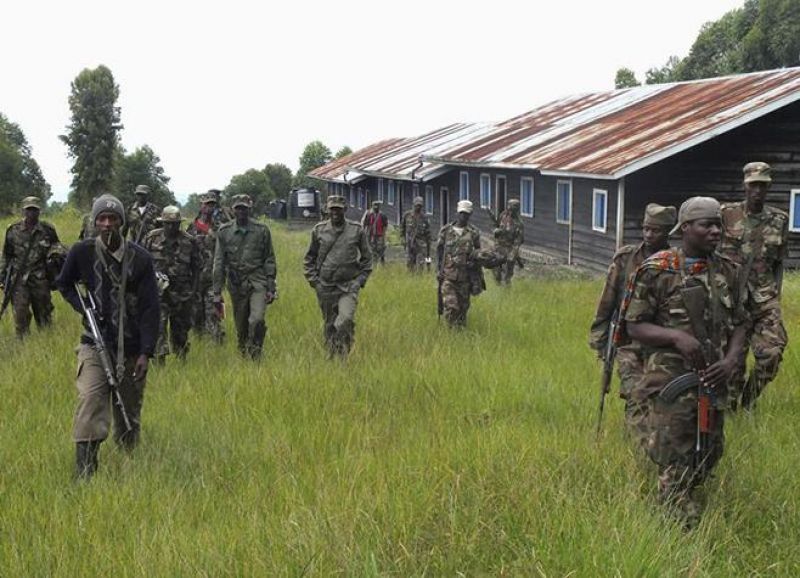The Congolese army collaborated with a coalition of Congolese militias and the Democratic Forces for the Liberation of Rwanda (FDLR) to battle against Rwandan-backed M23 rebels in the North Kivu region.

Human Rights Watch (HRW) claims to have convincing evidence that army troops in the Democratic Republic of the Congo aided armed groups involved in significant violations during fighting with rebels in the country's east.
According to the rights group, between May and August 2022, the Congolese army collaborated with a coalition of Congolese militias and the Democratic Forces for the Liberation of Rwanda (FDLR) to battle against Rwandan-backed M23 rebels in North Kivu region.
Army-backed rebel groups mistreated civilians - Rights group
Officers from the Congolese army (FARDC) reportedly provided sporadic assistance to these armed organizations. Congo researcher at Human Rights Watch, Thomas Fessy, stated:
"Congolese army units are again resorting to the discredited and damaging practice of using abusive armed groups as their proxies," said Thomas Fessy, senior Congo researcher at Human Rights Watch.
"The Congolese government should end this support, which leads to military complicity in abuses, identify officers responsibly, and hold them accountable."

'Patriotic' coalition
According to HRW, numerous abuses by armed groups over the previous year, including "illegal killing, sexual violence, and looting, caused the security situation to deteriorate," were also occasionally committed by Congolese military.
A non-aggression pact, or so-called "patriotic" coalition, was purportedly signed by the leaders of many armed factions in the Democratic Republic of the Congo, some of whom were rivals, in the early days of May.
They were to join forces against "the aggressor," M23. Several officers of the Congolese army were also present. Two top commanders of the FDLR were reportedly also present. According to HRW, photos from this meeting were distributed.
The HRW said, “All of these armed groups are known human rights abusers in their strongholds. Human Rights Watch has previously documented widespread abuses by forces under the command of [Guidon Shimiray Mwissa, leader of the Duma Defense of Congo-Renovated militia], who remains under UN sanctions.”
Congolese authorities have a warrant out for his arrest from 2019 for rape, child recruitment, and insurrection.
Abuse of civilians.
Eyewitnesses and fighters testified to Human Rights Watch that armed groups forced locals to aid them with supplies. A man from Kabaya told HRW, "We try to avoid contact with them [the armed groups], but they have requested a contribution from every household for their survival. It can be beans or even a cow for herders."
Other abuse cases against civilians include at least three killings by FDLR fighters in May and July and two cases of rape by Congolese soldiers in July, according to HRW.
The group also claims that the FARDC provided ammunition crates to some FDLR groups.The military has categorically denied any of these allegations.The DRC is battling dozens of armed groups in the east, many of which are the result of two regional wars a quarter-century ago.
A revival of warfare in the east has reignited decades-old animosities between Kinshasa and Kigali, with the DRC blaming Rwanda for the M23 ("March 23 Movement") militia's comeback. Rwanda has frequently denied supporting the insurgents, while both nations have accused one other of cross-border shelling.
US Secretary of State Antony Blinken encouraged Congolese and Rwandans to stop backing armed groups during a visit to Kigali in August.
Meanwhile, Angolan General Joao Massone was selected last month to head the International Conference for the Great Lakes Region's ad hoc verification mechanism entrusted with investigating claims made by the DRC and Rwanda against each other.

